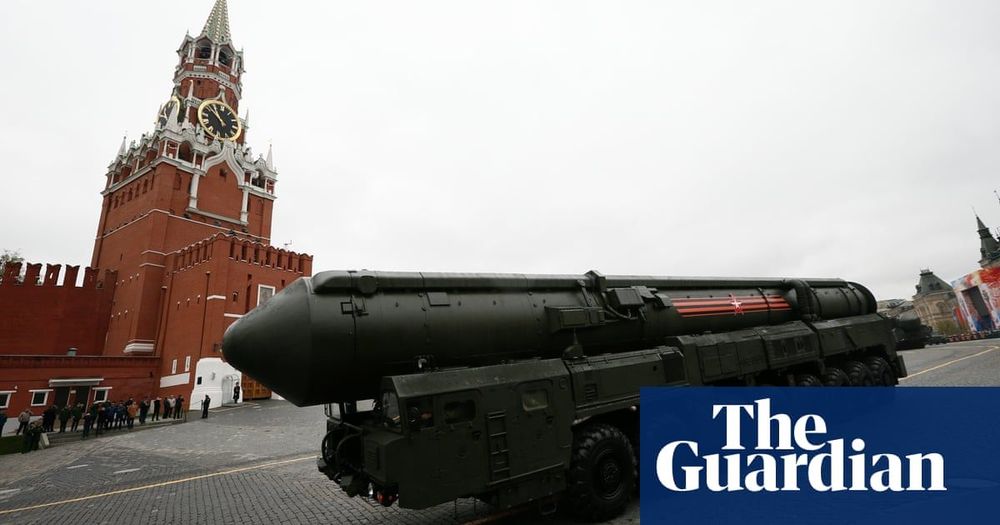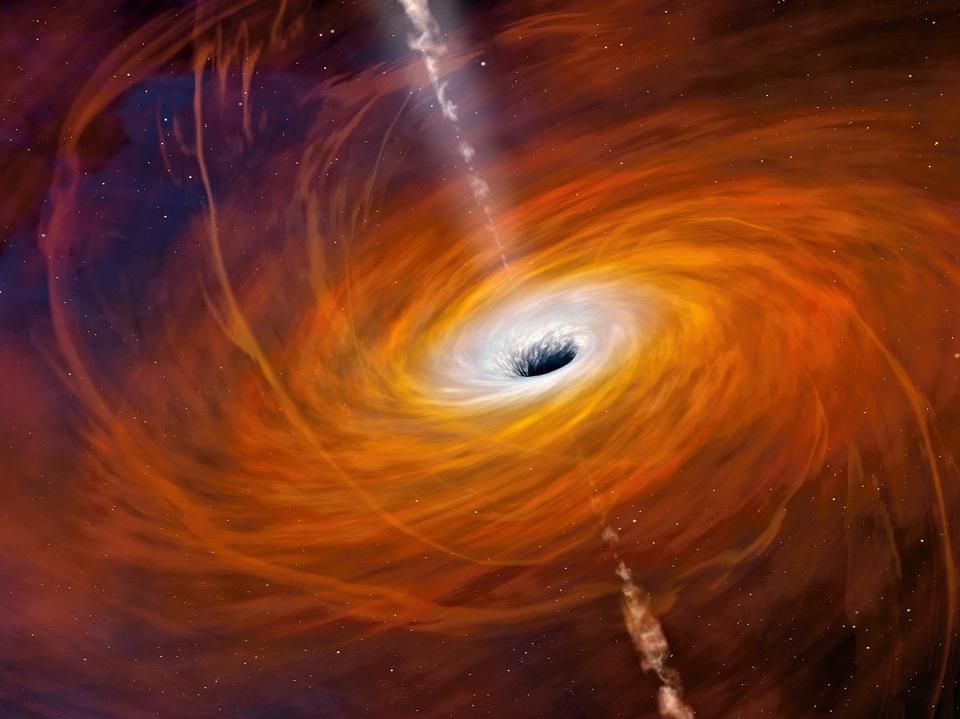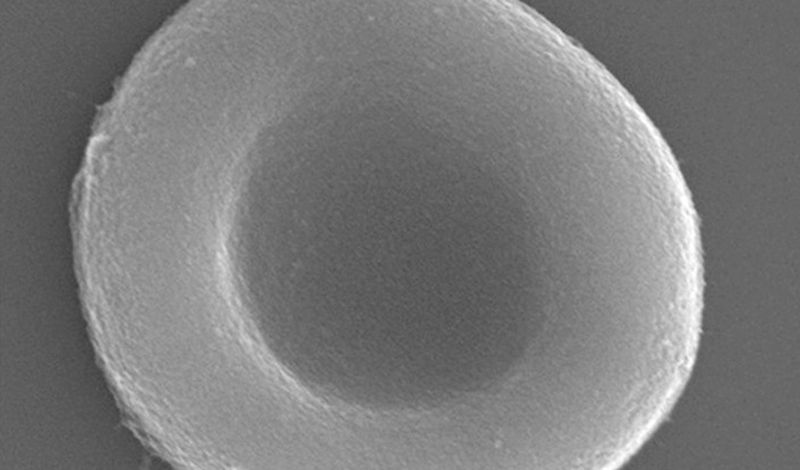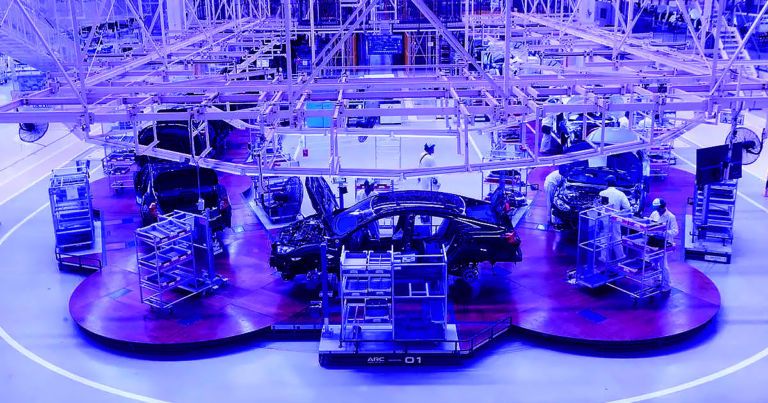But Moscow warns against insisting on including China in New Start negotiations.


A team of researchers at Université de Sherbrooke with assistance from a group at Exonetik Inc., has created a wearable supernumerary robotic arm that adds functionality for common human tasks. In their paper published in IEEE Spectrum, the group describes their robotic arm, its abilities and their plans for expanding its functionality.
A supernumerary robotic device is of a type that adds functionality to an existing system. In this case, the team in Canada added a third arm and associated three-fingered hand to a human subject.
The bottom part of the robot is strapped to the waist and hips of the user, anchoring it in place. The robot arm extends from its anchor and performs functions as the user either watches or carries out his or her own activities. The arm is motivated by magnetorheological clutches and hydrostatic transmissions, giving it three degrees of freedom. It does not weigh much, either, just four kilograms. But that is because it has a tethered power/control source that remains on the ground. It also is remotely controlled by another person standing nearby. Future plans call for semi-autonomous control.

A new version of Google’s mapping service being rolled out will display pandemic-related transit alerts and let people know when buses or trains might be crowded.
Updated versions of the free app for smartphones powered by Apple or Google-backed Android software will also let drivers know about COVID-19 checkpoints or restrictions on their routes.
“We’re introducing features to help you easily find important information if you need to venture out, whether it’s by car or public transportation,” Google Maps product management director Ramesh Nagarajan said in a blog post.



For more than two years, the Pentagon’s research arm has been working with engineers to beef up the security of computer chips before they get deployed in weapons systems or other critical technologies.
Now, the research arm — the Defense Advanced Research Projects Agency (DARPA) — is turning the hardware over to elite white-hat hackers who can earn up to $25,000 for bugs they find. The goal is to throw an array of attacks at the hardware so its foundations are more secure before production.
“We need the researchers to really roll their sleeves up and dig into what we’re doing and try to break it,” said Keith Rebello, a DARPA program manager. Hardware hacks often involve identifying vulnerabilities in how a computer chip handles information, like the flaw uncovered in Intel microprocessors in March that could have allowed attackers to run malicious code early in the boot process.

Extreme graphics: 3.
A new power is born out of the ancient Pyramid ship above Europa’s frozen frontier, and a dark empire has risen beneath, united under the banner of the Fallen Kell of Darkness, Eramis. Join your fellow Guardians and bring down the empire at any cost – even if it means wielding the Darkness itself.
As the new threat emerges, so too does a mysterious new power – Stasis. Rooted in Darkness, Guardians will wield this new elemental power alongside Arc, Solar, and Void to dominate the battlefield. Titans, Warlocks, and Hunters each use Stasis in a different way, from slowing down foes with Stasis fields to encasing and shattering enemies with destructive might.
Pre-Order Beyond Light: bung.ie/BeyondLight
FOLLOW DESTINY:
Facebook: https://www.facebook.com/DestinyTheGame
Twitter: https://www.twitter.com/destinythegame
Instagram: https://www.instagram.com/destinythegame
Discord: http://www.discord.gg/destinygame
FOLLOW BUNGIE:
Facebook: https://www.facebook.com/Bungie/
Twitter: https://www.twitter.com/bungie
Instagram: https://www.instagram.com/bungie/
⠀ ⠀ ⠀ ⠀
Dive into the free-to-play world of Destiny 2 to experience responsive first-person shooter combat, explore the mysteries of our solar system, and unleash elemental abilities against powerful enemies. Create your Guardian and collect unique weapons, armor, and gear to customize your look and playstyle. Experience Destiny 2’s cinematic story alone or with friends, join other Guardians for challenging co-op missions, or compete against them in a variety of PvP modes.


New roll-to-roll production method could enable lightweight, flexible solar devices and a new generation of display screens.
A new way of making large sheets of high-quality, atomically thin graphene could lead to ultra-lightweight, flexible solar cells, and to new classes of light-emitting devices and other thin-film electronics.
The new manufacturing process, which was developed at MIT and should be relatively easy to scale up for industrial production, involves an intermediate “buffer” layer of material that is key to the technique’s success. The buffer allows the ultrathin graphene sheet, less than a nanometer (billionth of a meter) thick, to be easily lifted off from its substrate, allowing for rapid roll-to-roll manufacturing.